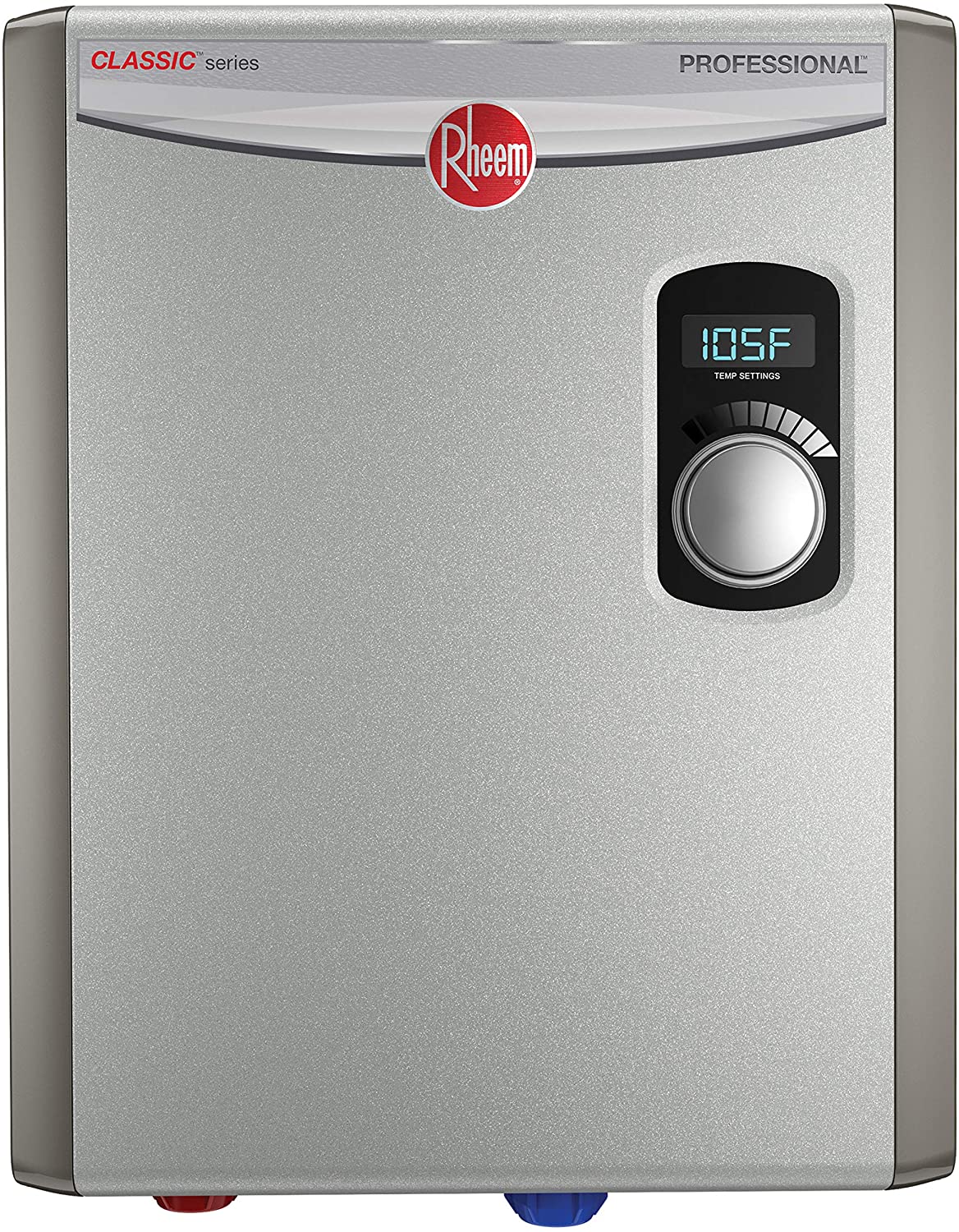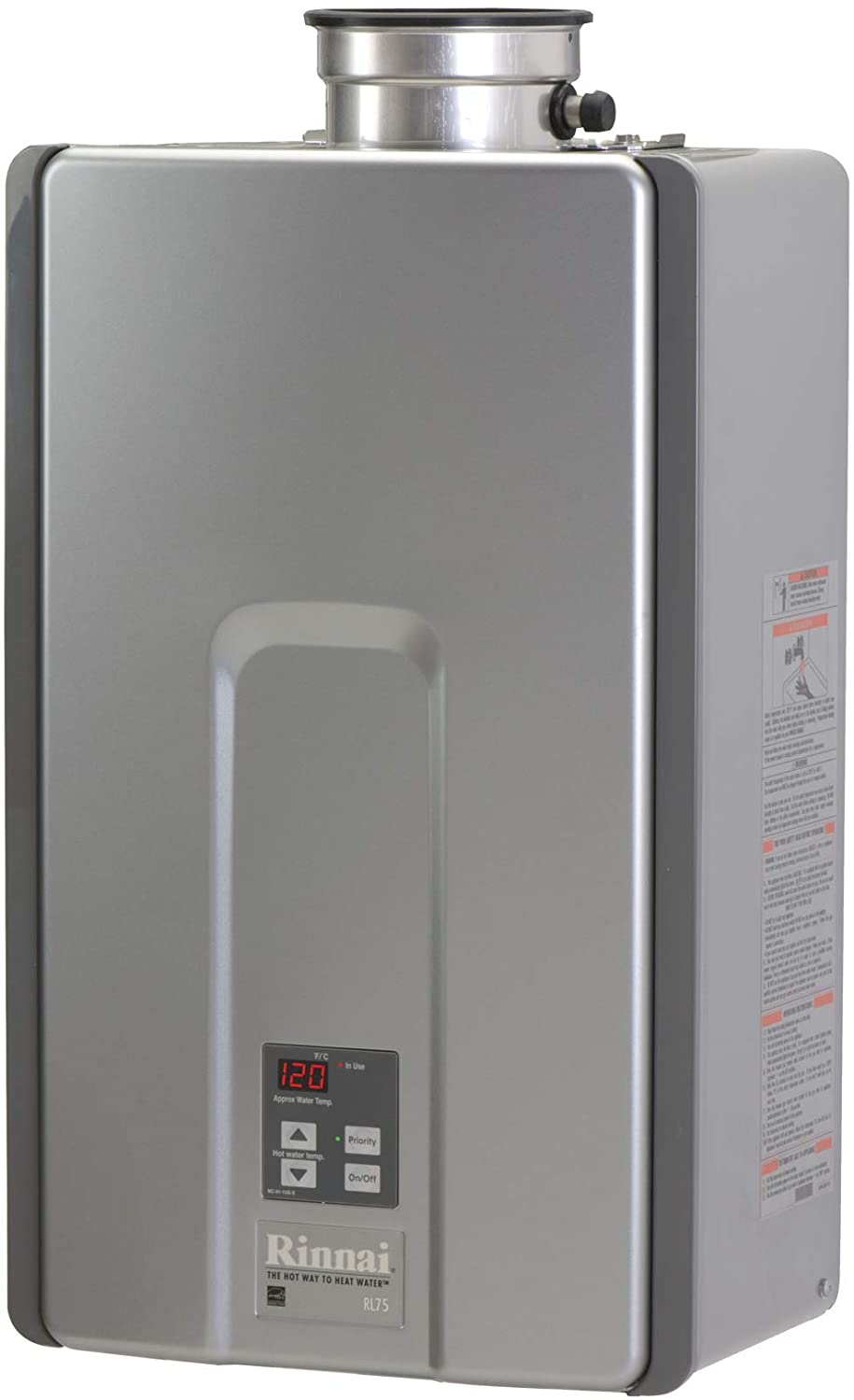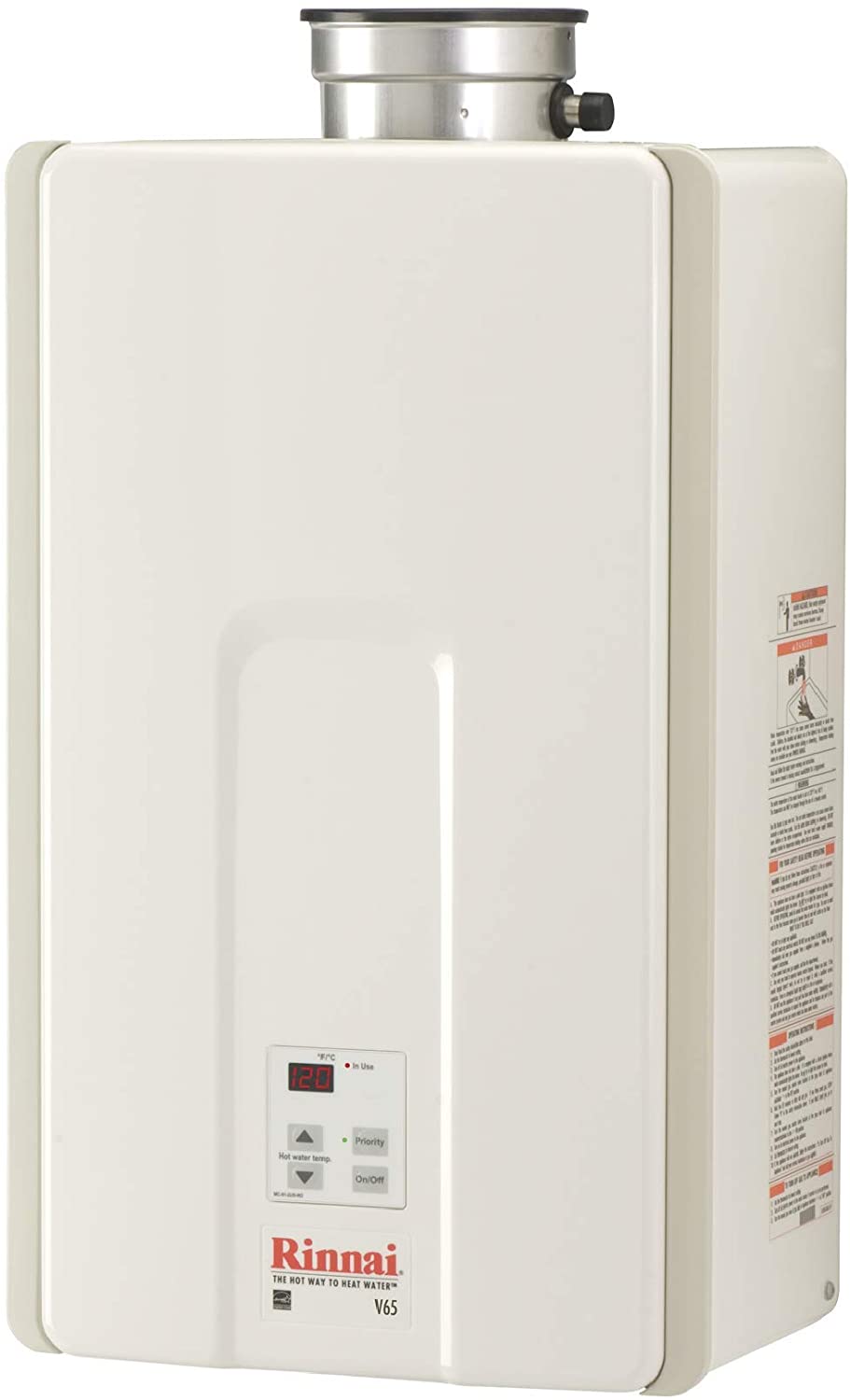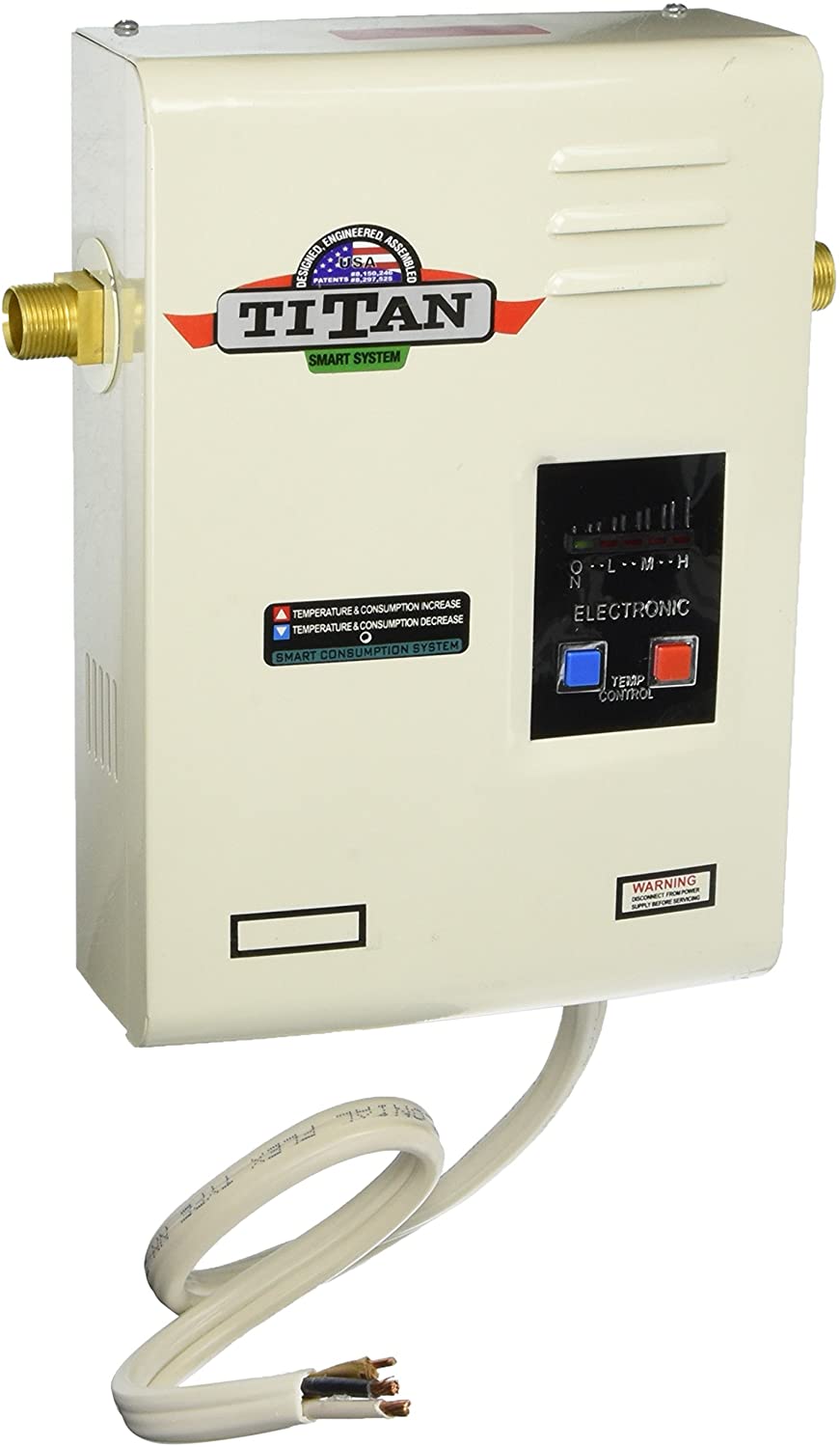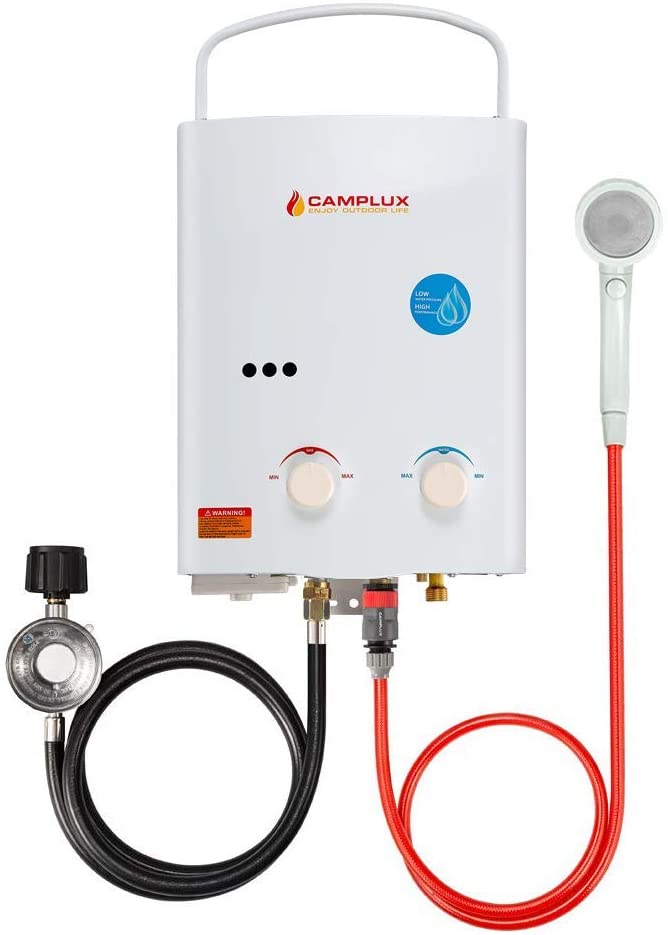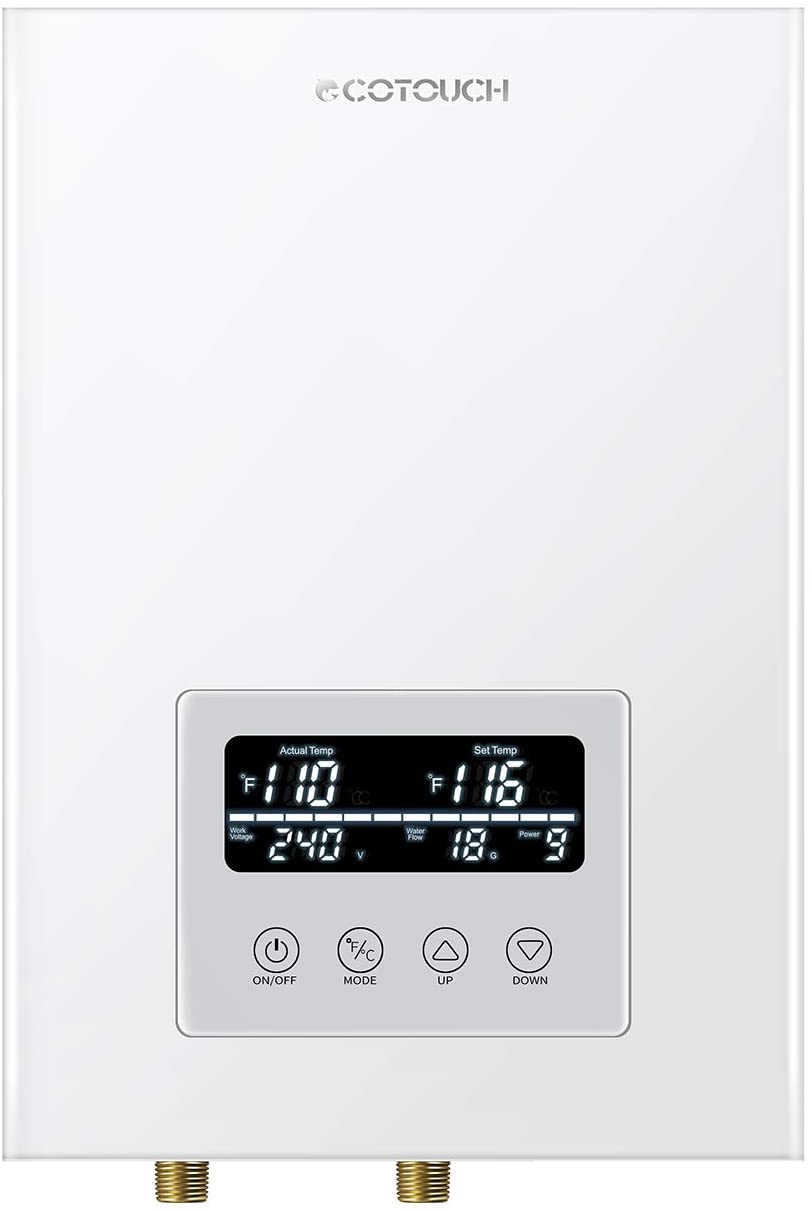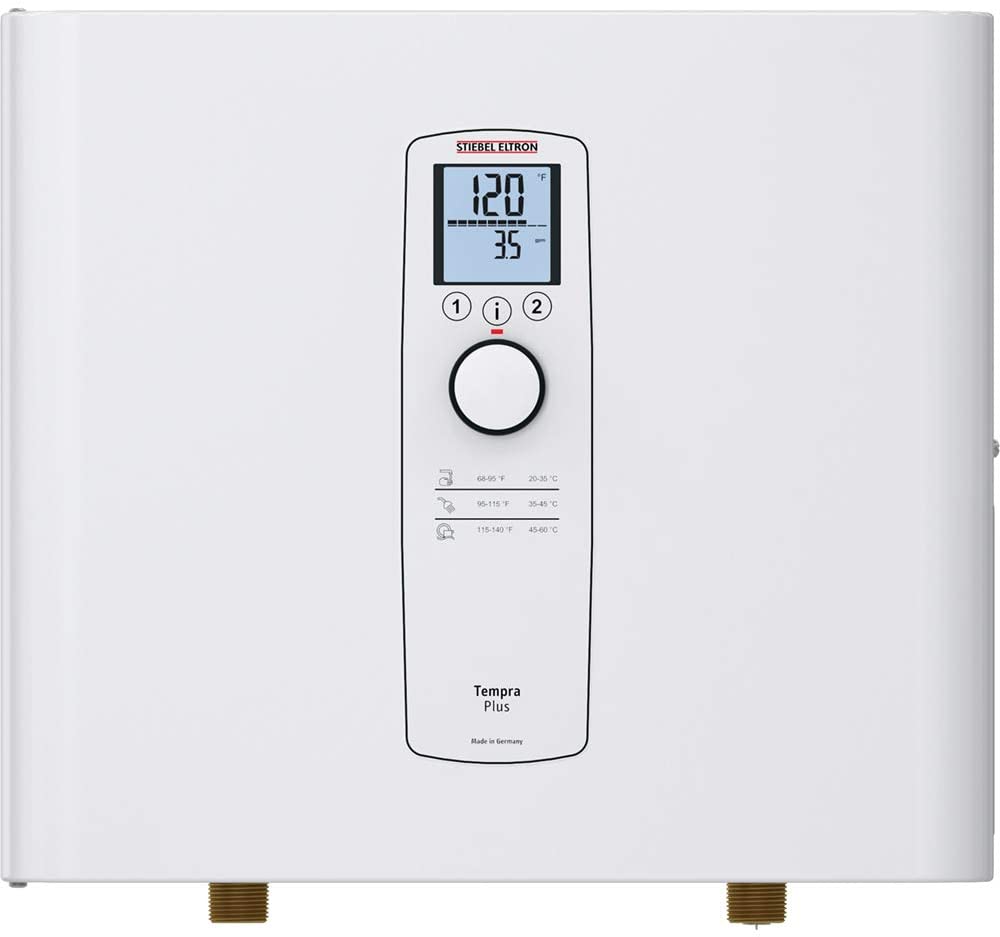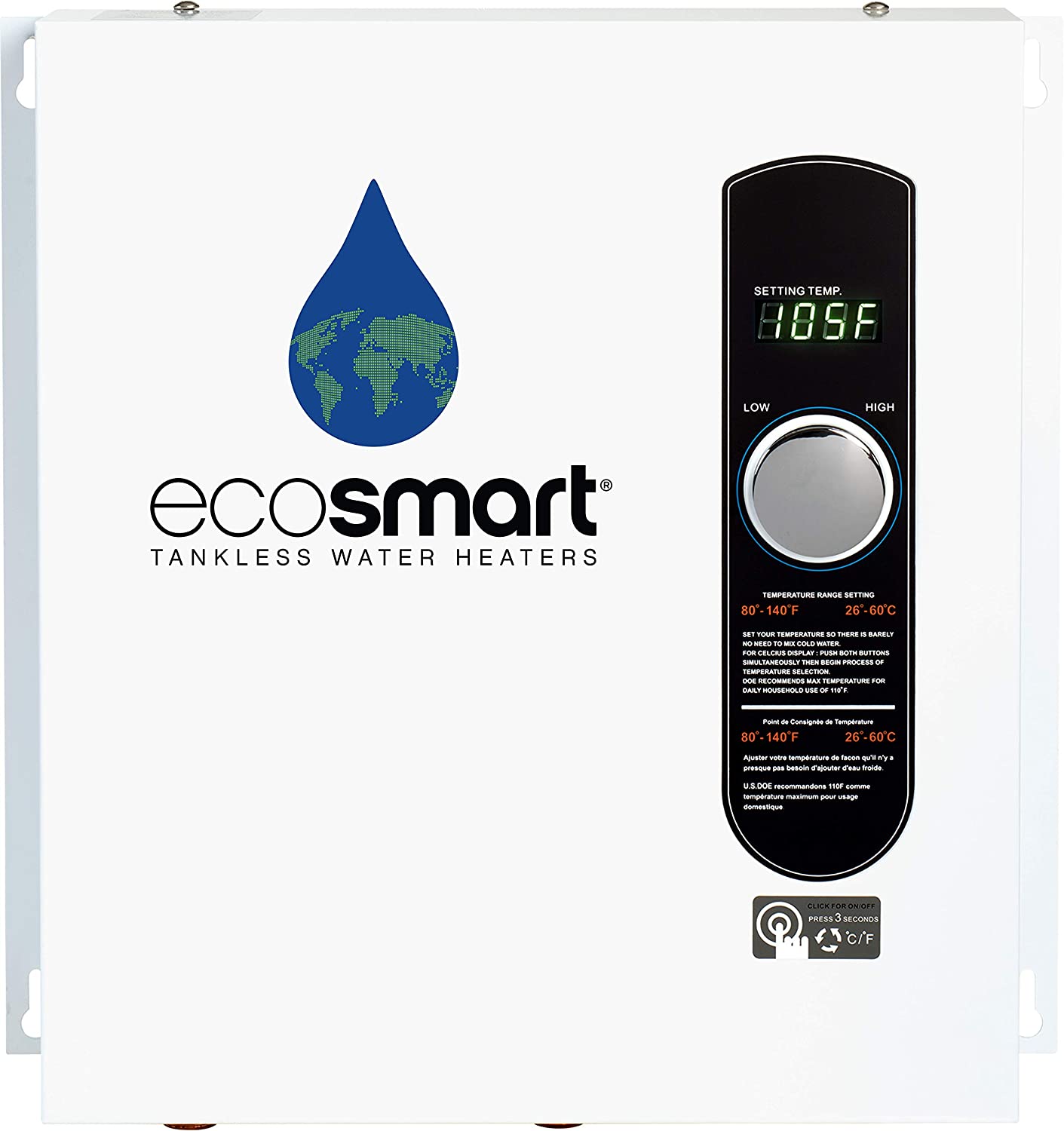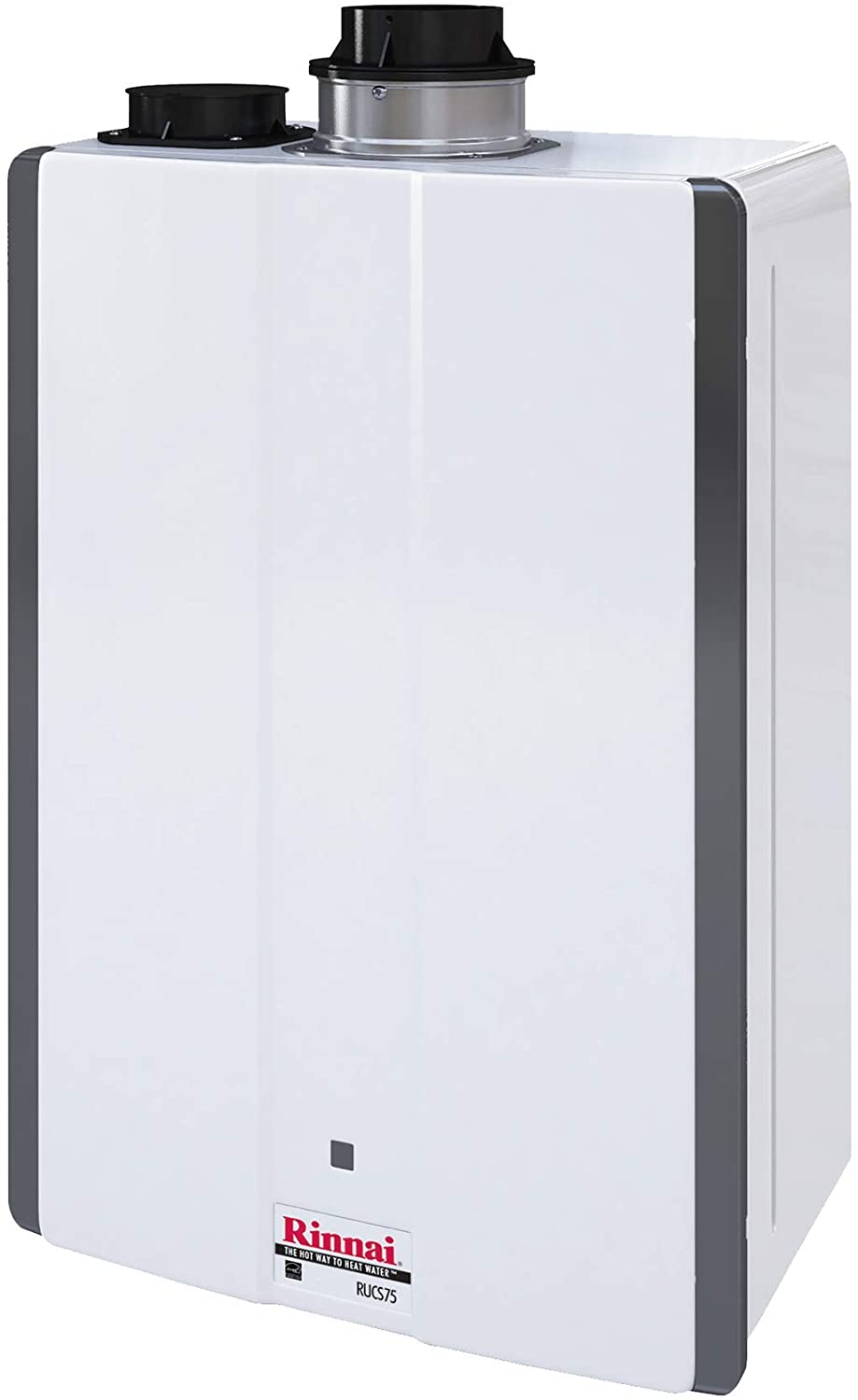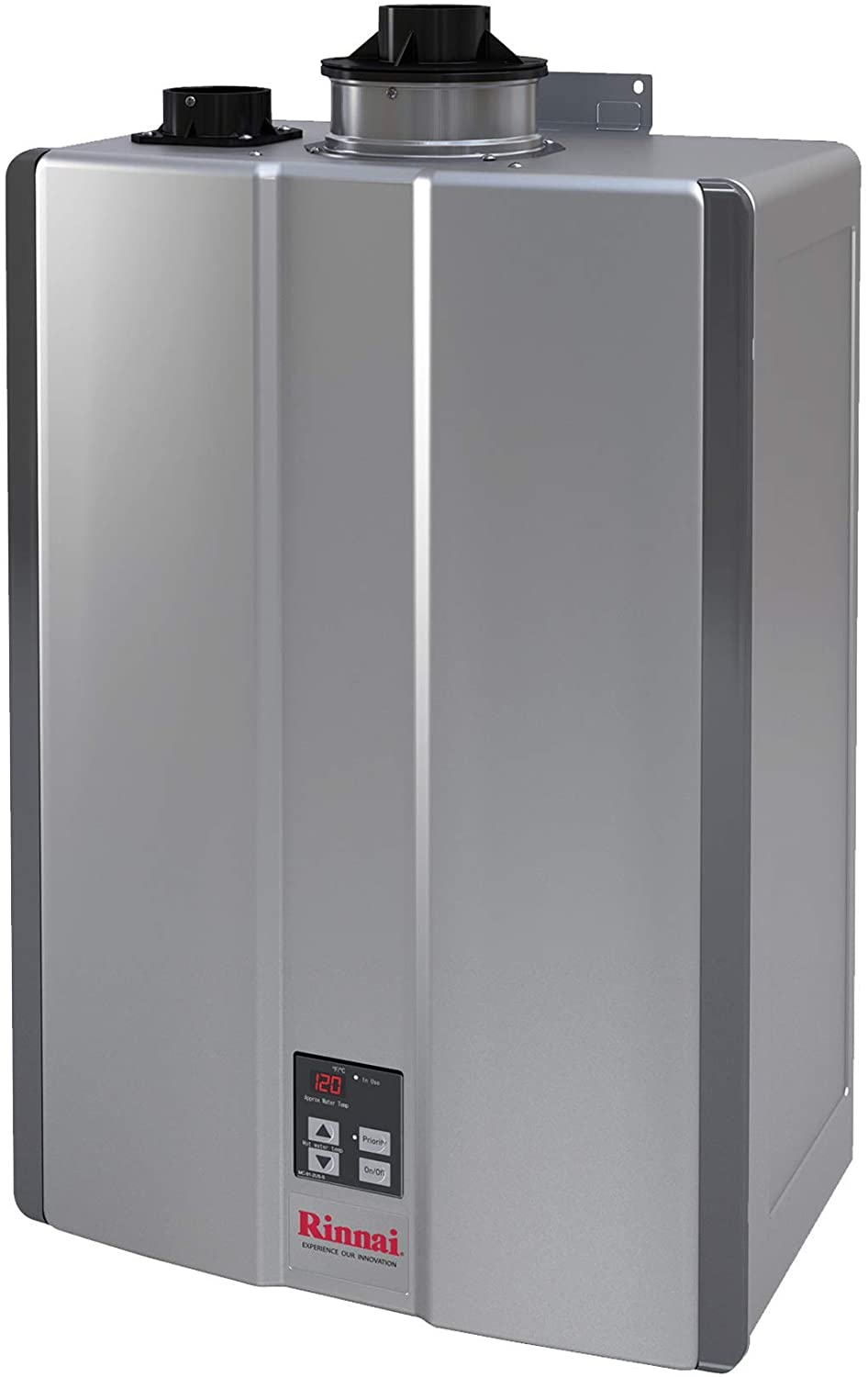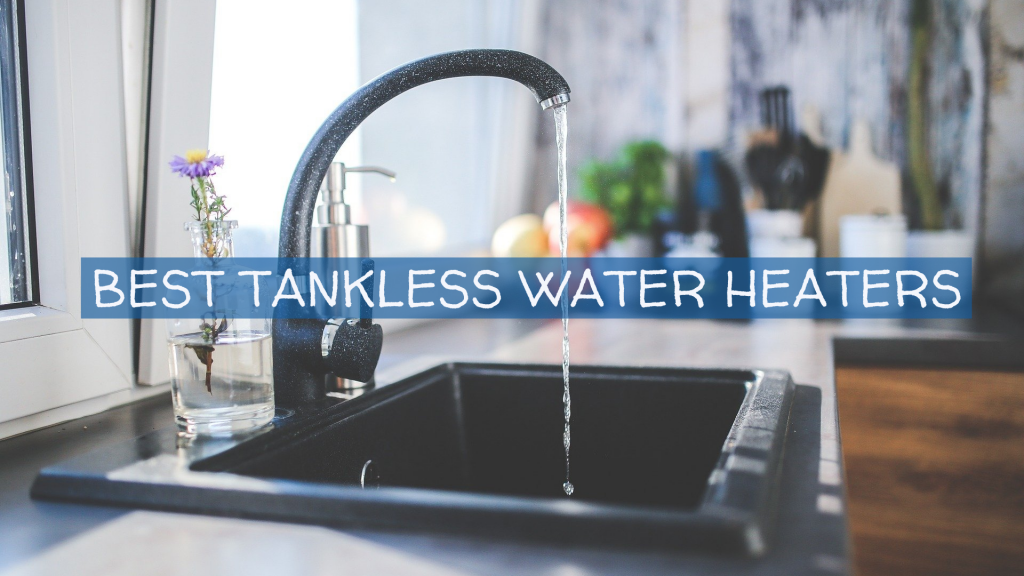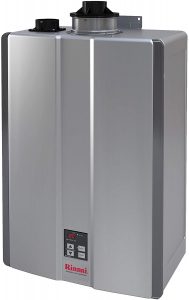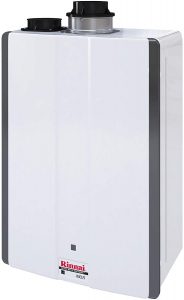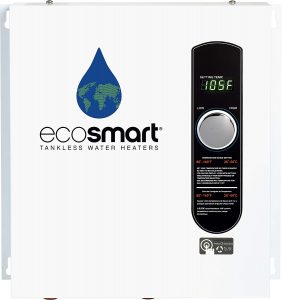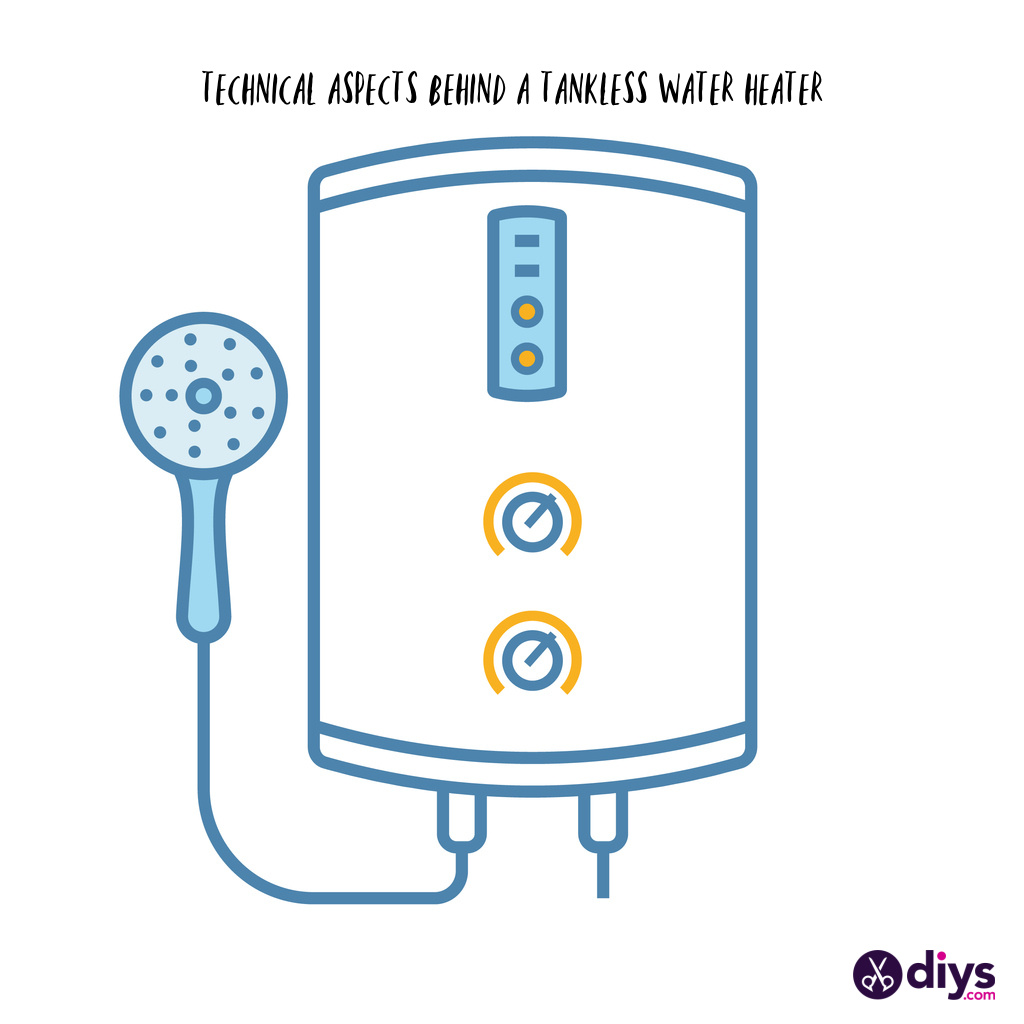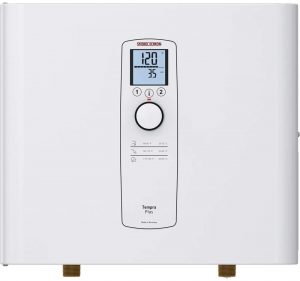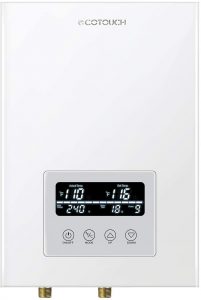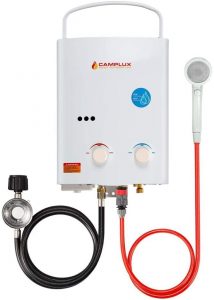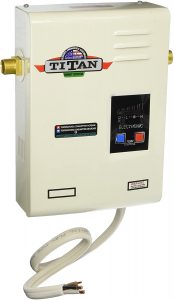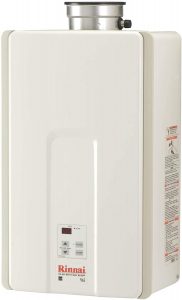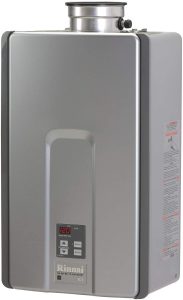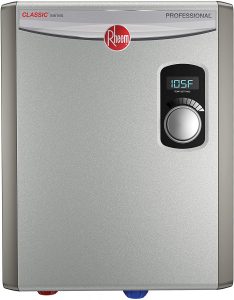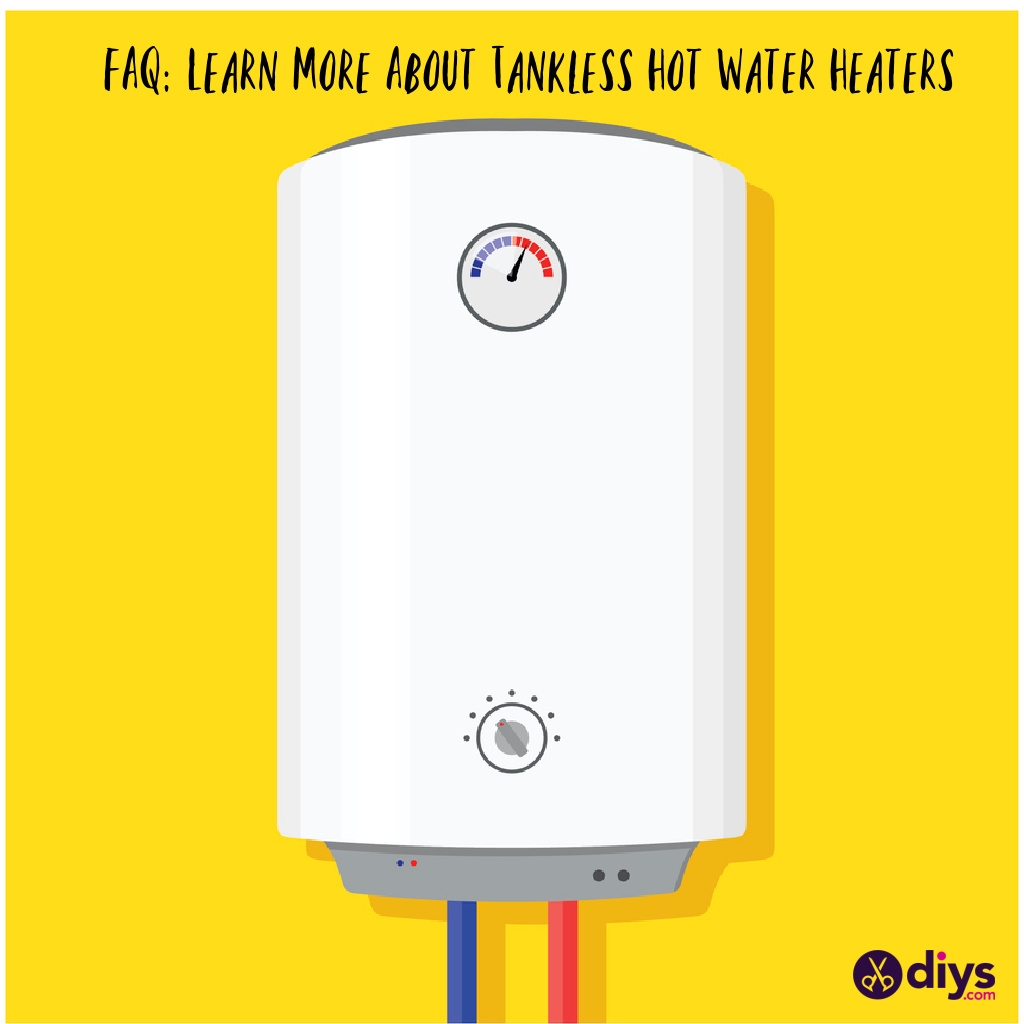10 Best Tankless Water Heaters in 2023 – Which One’s Right for You?
If you’re looking for the best tankless water heater for your household, it means that you have grown tired of creating shower and dishwashing schedules with your family members. It’s a better solution than using a tank-based water heater since it delivers a limited supply of hot water, regardless of the tank capacity.
Perhaps you already know this, but we’re going to tell you anyway, just in case you’re unsure about investing a large amount of money: getting a tankless water heater is one of the smartest decisions you can make as a homeowner.
Besides the obvious benefits of having round-the-clock hot water, the system should last for 20-30 years if you learn how to properly take care of it. You will consume less water in the long run, thus saving money and doing nature a huge favor.
The only downside of a tankless water heater is the cost. It means not only purchasing the machine but also installing it. Also, it’s crucial to clarify this: having a tankless water heater doesn’t mean that you will have instant hot water because it still needs time to flow from the heater to the faucet. But you won’t run out of hot water.
Not Enough Time for a Full Read? Check Out the 3 Best Water Heaters for Your Home
| Rinnai RUCS75iP | Rinnai RUR199iN | Ecosmart ECO 24 |
|---|---|---|
| 7.5 GPM flow rate | 11 GPM flow rate | 5.8 GPM flow rate |
| 93% energy savings | 96% energy savings | 99.8% energy savings |
| Runs on propane gas | Runs on natural gas | Runs on electricity |
| 10-year warranty | 15-year warranty | Lifetime warranty |
| Check price on Amazon. | Check price on Amazon. | Check price on Amazon. |
What to Look for When Buying a Tankless Water Heater?
There are several technical aspects behind a tankless water heater that you should take into account before making the acquisition. It doesn’t mean that you have to start thinking like an expert. You can leave the hard part to us and just focus on meeting the following criteria:
Fuel Type
Tankless water heaters run on three types of fuel: electricity, natural gas, and liquid propane. Each has its unique characteristics, so it’s important to take this into account when looking for the best tankless water heater for your home.
Electricity
Electric tankless water heaters are safe to operate, don’t require ventilation, and provide efficient use of energy. The initial costs are a bit lower when compared to other fuel types.
On the downside, the costs of maintenance can become higher, depending on the price of electricity in your area. Furthermore, it may take a while to heat up your entire home, and you will be affected by power outages.
Natural Gas
Tankless water heaters running on natural gas are more affordable than the electric version when it comes to both the initial installation and costs of maintenance. They are also more versatile since they work well in all environments.
However, natural gas water heaters are less safe, less efficient, and require space dedicated to ventilation.
There are two types of natural gas heaters: condensing and non-condensing. Condensing gas heaters don’t have special requirements for the ventilation system, but they are more expensive. Meanwhile, non-condensing gas heaters are cheaper but need a correct ventilation system.
Liquid Propane
Finally, tankless water heaters running on liquid propane are similar to the natural gas version. But the cost of maintenance is lower since you need about one gallon of liquid propane for every three or four gallons of natural gas. Plus, it’s a friendly fuel for the environment.
Flow Rate
When it comes to tankless water heaters, the flow rate is measured in gallons per minute (GPM), which depends on the heat rise. It usually varies between 3 GPM and 8 GPM, but some heaters support a higher PM.
When searching for the best tankless water heater, you must take into account the size of your home, the number of people living there, and how often you use hot water.
For instance, the low end of 3 GPM is enough to support a shower and a small appliance running simultaneously. Meanwhile, the high end of 8 GPM is suitable for two showers and a large appliance or two small appliances.
A high flow rate means that you won’t risk running out of hot water, but it’s also more expensive to buy and maintain.
Here are some examples of how much GPM (roughly) is required by home appliances:
- Shower: 1.5 to 3 GPM
- Faucet: 2 to 3 GPM
- Dishwasher: 2 to 4 GPM
- Washing machine: 3 to 5 GPM
If you prefer a cheap tankless water heater, consider purchasing one with a medium flow rate that’s ideal for single point-of-use households. Taking into account the examples above, you should be fine with a 5 GPM heater.
However, if you’re looking for a whole-house tankless water heater, you should add the GPM of all appliances you plan to use at the same time.
EF Rating
The energy factor (EF) rating indicates the efficiency of the tankless water heater: how much hot water is created for every unit of consumed fuel.
If you purchase a heater with a high EF rating, it means that it will use less fuel to generate the same amount of hot water as a heater with a low EF rating that uses more fuel.
So, a high EF rating is better for your home in the long run, but it’s also more expensive. If you’re interested in this option, you should look for tankless water heaters with an Energy Star EF rating.
Durability
The durability of a tankless water heater is determined by the durability of the heating element. Electrical water heaters typically last 7-10 years, while gas heaters go as up as 30 years. Since liquid propane is less consuming than natural gas, a tankless water heater running on liquid propane is the most durable option.
And, if your home doesn’t have natural gas and runs only on electricity, you can get the liquid propane model if you’re interested in a durable option and can afford the initial costs.
Relative Price
When buying the best tankless water heater for your home, you must take into account not only the price of the unit but also the price of installation and fuel (maintenance).
Unit Price
The initial cost of the tankless water heater depends on the fuel type, flow rate, and EF rating. Electric heaters with a low GPM and poor EF rating are the cheapest version, but it will mean higher maintenance costs.
Liquid propane heaters with a high GPM and Energy Star EF rating are the most expensive option but will end up saving you a lot of money in the long run.
Installation Price
You need to hire a plumber regardless of which type of tankless water heater you end up buying, so you can’t avoid the installation cost. But you can reduce it by taking into account the type of heater.
For example, condensing gas heaters don’t have special requirements for ventilation, so they are cheaper to install but more expensive to buy. On the other hand, non-condensing gas heaters are cheaper to buy but more expensive to install due to the ventilation necessities.
Furthermore, if you are planning on replacing your tank water heater with a tankless version, you must also keep in mind the costs of uninstalling the current unit.
Fuel Price
The fuel price represents the largest part of maintenance costs. It greatly depends on where you live since electricity could be more expensive than natural gas (or vice versa). So, make sure to find out this essential piece of information before you start looking for tankless water heaters.
Liquid propane is more expensive than natural gas, no matter how you put it, but you will save a lot of money in the long term when taking into account the EF rating.
What Are the Best Tankless Water Heaters in 2021?
Let’s take a closer look and find out what makes the following tankless water heaters the best in the business.
1. Rinnai RUR199iN
Rinnai RUR199iN occupies the top spot in our list, and it’s the best tankless water heater for large homes. It’s suitable for both hot and cold climates. You can install it not at home or at the office.
This model is part of the Super High-Efficiency Plus series, which delivers the highest EF rating supported by company Rinnai – 96%. It’s wrapped in a small package and can be installed anywhere indoors.
Here are the technical details:
- Fuel type: natural gas (condensing)
- Flow rate: 9 to 11 GPM
- Temperature range: 98° to 140° F (35° to 60° C)
- EF rating: 96% (Energy Star certified)
- Usage: indoor only
- Warranty: 15 years for the heat exchanger, 5 years for parts, 1 year for labor (5 years optional)
- Unit price: $1,769.14
Pros
- Excellent flow rate at 11 GPM
- Awesome efficiency of 95% EF rating
- High temperature of 140°F (60°C)
- Supports recirculation (ThermaCirc360)
- Supports Wi-Fi and voice activation
Cons
- Pricey
- Can’t be used outdoor
2. Rinnai RUCS75iP
Rinnai RUCS75iP is the best tankless water heater on this list that runs on propane gas. It has an excellent energy savings rating, thanks to dual-heat exchangers. And it can deliver a flow rate of up to 7.5 GPM.
The heater comes with a mobile app that allows you to set up schedules and timers, as well as to remotely control the heater when you’re on vacation. Moreover, it doesn’t make a lot of noise – only 55 dB and can be installed in mobile homes and in altitudes of up to 5,400 ft (1.64 km).
Here’s what you need to know:
- Fuel type: propane gas (condensing)
- Flow rate: 6.5 to 7.5 GPM
- Temperature range: up to 140°F (60°C)
- EF rating: 93%
- Usage: indoor only
- Warranty: 10 years for the heat exchanger, 1 year for labor, and 5 years for parts
- Unit price: $1,071.60
Pros
- High temperature of 140°F (60°C)
- Great efficiency – 95% EF rating
- Dual-heat exchangers
Cons
- Can’t be used indoor
3. Ecosmart ECO 24
Ecosmart ECO 24 is a performant tankless water heater that runs on electricity. It has 24 KW and an excellent energy factor rating. The heater is less expensive than other competitors on this list, and it comes with a lifetime warranty.
It’s suitable for apartments and large homes, including cold climates. However, it’s not the best choice when it comes to the flow rate.
Check out its specifications:
- Fuel type: electric
- Flow rate: 2.4 to 5.8 GPM
- Temperature range: 80° to 140° F (27° to 60° C)
- EF rating: 99.8%
- Usage: indoor only
- Warranty: lifetime for the heater (electronics, exchanger, element) but doesn’t cover the labor
- Unit price: $460.69
Pros
- Excellent EF rating
- Lifetime warranty
Cons
- Not the best flow rate
- Can’t be used outdoor
4. Stiebel Eltron Tempra 24 Plus
Stiebel Eltron Tempra 24 Plus is a lightweight and affordable tankless water heater with a sleek design and which takes up small space.
It gives you the possibility to electronically control the water flow and create presets with temperature settings to later activate them by just pressing a button.
You can also view a monitor to find out how much you save on energy costs. The water heater is really quiet. However, due to its low flow rate, it can’t supply more than two major appliances at the same time.
Check out the technical details:
- Fuel type: electric
- Flow rate: 4.68 GPM
- Temperature range: 68° to 140° F (20° to 60° C)
- EF rating: 99%
- Usage: indoor only
- Warranty: 7 years for leaks and 3 years for parts
- Unit price: $674.00
Pros
- Affordable
- No ventilation required
- Great temperature range
- Excellent EF rating
- Works great for mobile homes
Cons
- Low flow rate
- Not suitable for large homes
- Can’t be used outdoor
5. ECOTOUCH ECO90
ECOTOUCH ECO90 is a super-cheap tankless water heater with an elegant design and touchscreen display for smart touch control, which you can show off in your home instead of hiding it in a dark corner.
The heater runs on electricity and comes equipped with some cool features like leakage, overeating, and dry heating protection. It’s really silent. And you can toggle the temperature measurement unit between Fahrenheit and Celsius.
However, it has a low flow rate and mainly focuses on sinks, dishwashers, and washing machines only, so it’s not suitable for showers, let alone bathtubs. On top of that, it can’t heat water more than 106° F (41° C).
Here are the specs you need to know:
- Fuel type: electric
- Flow rate: up to 1.5 GPM
- Temperature range: 77° to 131° F (25° to 55° C)
- EF rating: Energy Star (99.8%)
- Usage: indoor only
- Warranty: 1 year
- Unit price: $169.99
Pros
- Cool design
- Really really cheap
- Excellent EF rating
- Silent
Cons
- Poor flow rate
- Temperature is not high enough
- Not suitable for showers or bathtubs
- Not suitable for cold climates
- Can’t be used outdoor
6. Camplux AY132
Camplux AY132 is a small-sized and portable tankless water heater that can be used outdoor for camping, barns, bathing animals, and taking quick outdoor showers. However, it can also be installed indoors with a good ventilation system, tanks to Oxygen Depletion Sensor Protection.
The heater can automatically protect itself from freezing and overheating, making it ideal for all climates, no matter where you and your family are traveling. It runs on propane gas, takes about 15 minutes to set up, and requires two D cell batteries.
Here are the technical details:
- Fuel type: liquid propane
- Flow rate: 1.32 GPM
- Temperature range: 46.4° to 114.8° F (8° to 46° C)
- EF rating: 11.5%
- Usage: indoor and outdoor
- Warranty: 1 year
- Unit price: $159.99
Pros
- Cheap to buy and maintain
- Excellent for camping and outdoor
- Lightweight and portable
Cons
- Poor EF rating and maximum temperature
- Not recommended for elevation above 2000 ft (610 m)
- Not suitable for homes and indoor use
7. Titan SCR2 N-120
Titan SCR2 N-120 is a budget-friendly tankless water heater that can be used in homes with up to 3 bathrooms. It features digital temperature control and a thermostat that can be reset manually.
Additionally, it works best with warm climates where the groundwater temperature is above 65° F (18° C). It has an excellent energy factor rating.
On the downside, Titan SCR2 N-120 has a pretty low flow rate when comparing it to other tankless water heaters from this list. Also, it doesn’t work well in cold climates.
Here’s everything you need to know:
- Fuel type: electric
- Flow rate: 1 to 4 GPM
- Temperature range: 110° to 120° F (43° to 48° C)
- EF rating: Up to 99.5%
- Usage: indoor only
- Warranty: 1 year for electrical components and 10 years for water components
- Unit price: $243.00
Pros
- Affordable
- Great for warm climates
Cons
- Not a good-looking heater
- Poor flow rate
- Not suitable for cold climates
- Can’t be used outdoor
8. Rinnai V65iP
Rinnai V65iP is a tankless hot water heater that runs on propane gas. It’s exclusively designed for indoor installation and optimized for saving energy and minimizing space.
You can use it in a small or medium-sized home with up to two and a half bathrooms without any issues. Rinnai V65iP also comes with an integrated error code indicator.
Check out the technical specifications:
- Fuel type: liquid propane
- Flow rate: 6.5 GPM
- Temperature range: 98° to 140° F (37° to 60° C)
- EF rating: 82%
- Usage: indoor only
- Warranty: 10 years for the heat exchanger, 5 years for labor, and 1 year for parts
- Unit price: $714.60
Pros
- Excellent temperature range
- Decent value for money
Cons
- Not the best EF rating
- Can’t be used outdoor
9. Rinnai RL75eN
Rinnai RL75eN is a tankless water heater solely designed for outdoor use. It’s packed in a small package the size of a suitcase so that you can easily wrap it up and take it with you during camping or outdoor vacations.
It runs on non-condensing natural gas and is capable of recirculation. Thanks to Circ-Logic technology, the heater can calculate recirculation patterns based on your water usage habits. Furthermore, it supports Wi-Fi and voice activation and can be installed in altitudes up to 10200 ft (3109 m).
Check out the heater’s specifications:
- Fuel type: natural gas (non-condensing)
- Flow rate: 7.5 GPM
- Temperature range: 98° to 140° F (37° to 60° C)
- EF rating: 82%
- Usage: outdoor only
- Warranty: 10 years for the heat exchanger, 1 year for labor, and 5 years for parts
- Unit price: $1,183.50
Pros
- Good flow rate and EF rating
- Excellent temperature range
Cons
- Expensive
- Can’t be used indoor
10. Rheem RTEX-18
Rheem RTEX-18 is a great tankless water heater for a single point of use or multiple appliances running at the same time. It’s one of the quietest products, runs on electricity, and has a flow rate of up to 4.4 GPM.
Powered by 18 KW, the water heater comes with self-modulating power control, two heating elements, and a LED display that allows you to digitally adjust the thermostat by 1°. It doesn’t support recirculation, however.
Here are the technical details:
- Fuel type: electric
- Flow rate: up to 4.4 GPM
- Temperature range: 80° to 140° F (27° to 60° C)
- EF rating: 99.8%
- Usage: indoor only
- Warranty: 5 years
- Unit price: $399.00
Pros
- Excellent temperature range and EF rating
- Extremely quiet
- Self-modulating technology
- Decent price
Cons
- Medium flow rate
- Can’t be used outdoor
FAQ: Learn More About Tankless Hot Water Heaters
What tankless water heater size do I need?
The actual dimensions and weight of a tankless water heater don’t matter that much since most units are small enough to be mounted on the wall. And the portable versions are light enough to be picked up and carried while camping.
What you are interested in is the flow rate (GPM) and required temperature rise. To figure out the amount of total GPM you need, you should calculate GPM required by each home appliance and then add those values.
To determine the required temperature rise, you must first find out the groundwater temperature in your area and then subtract it from the desired output temperature.
It’s generally recommended to have your water heated at 105° – 115° F (40° – 46° C), which means that you need a tankless hot water heater capable of creating a 55° F (13° C) temperature rise.
How does a tankless water heater work?
A tankless water heater heats up the water as it flows through the pipes. This way, it doesn’t have to temporarily store water in a tank before sending it to the faucet. A heating element is responsible for the temperature rise, which can be fueled by electricity, natural gas, or liquid propane (depending on how the heater is built).
This results in an endless supply of hot water. However, contrary to popular belief, the water isn’t heated up almost instantly. It takes a few seconds, but it’s still the quickest way to get hot water in your home.
How much is a tankless water heater?
The price of a tankless water heater may vary, depending on the fuel type, flow rate, EF rating, durability, and various extra features. Besides the unit cost, you must also take into account the installation and fuel costs.
On this list, you can find tankless hot water heaters whose price ranges from $159.99 to $1,915. If you want to make a smart decision for your home in the long run and, if you can afford it, you should invest in an expensive heater. It will last up to 20-30 years and will end up saving you a lot of money.
Why does my water heater smell of sulfur?
The smell of sulfur (rotten eggs) is common with tank-based water heaters. It’s caused by a sulfate bacteria that grows in the tank when the water has been sitting for too long if your well isn’t treated with chlorine, or when using a water softener and magnesium anode rod.
However, a tankless water heater can’t smell sulfur because there’s no place for the sulfate bacteria to grow. Such heaters also don’t require a magnesium anode rod.
Can I put a recirculating pump on a tankless water heater?
Yes, it’s possible to install a recirculating pump on a tankless water heater. It will help keep the water heated in the tap so that it instantly reaches the faucet when you turn it on. That’s because, while tankless water heaters provide an endless supply of water, it takes a few seconds to reach the faucet.
What is more efficient between a propane and an electric tankless water heater?
Both versions are eco-friendly, but there’s no right answer here. It mostly depends on how much each type of fuel costs in your area, so you should find out this important bit of information before buying a tankless water heater for your household.
When it comes to electric heaters, you don’t need to set up a ventilation system, so it’s a convenient solution. Furthermore, they are safe to operate. But you will be affected by power outages, so it’s definitely worth taking into account if you live in an area where you frequently lose power and don’t have a power generator.
Can a tankless water heater be installed outside?
Yes, you can install a tankless water heater on the outside if you don’t have enough room in your home. However, it’s still a good idea to protect the unit from humidity and extreme temperatures, even if it comes with protection against freezing and overheating.
Examples of tankless hot water heaters that can be installed outdoor include Camplux AY132 and Rinnai RL75eN.
What is the downside of a tankless water heater?
The biggest downside of a tankless water heater is that it’s expensive when it comes to the unit, installation, and fuel price. That’s why it’s so important to thoroughly do your research before purchasing a tankless water heater for your home. If you can afford to invest a bigger amount of money now, you will be able to save a fortune over time.
How long does hot water last with a tankless water heater?
Hot water is continuously produced by a tankless water heater, so you will never run out. When it comes to the durability of the heater, you can invest in a product that will last as long as 20 to 30 years.
Does a gas tankless water heater need a dedicated circuit?
Most tankless water heaters running on gas require a very small amount of amperage for ignition. Therefore, you won’t need a dedicated circuit unless otherwise specified by the manufacturer. Make sure to consult the heater’s manual to find out this important piece of information before purchasing a tankless hot water heater for your home.
Does a tankless water heater increase home value?
Yes, definitely. Even if you plan on selling your home after purchasing an expensive tankless water heater, you shouldn’t worry about losing money because it can significantly increase your home value. According to a Zillow study, it was revealed that tankless water heaters improved home value by 4%.
Final Thoughts: Is a Tankless Water Heater Worth It?
We can’t stress this enough: getting a tankless water heater is one of the smartest decisions you can make for your home. It’s just as important as installing a clean water system or upgrading your electrical system.
You can find some cheap options out there, but we suggest putting some money aside to get an expensive option like Rinnai RUR199iN. We think it’s the best tankless water heater that hits all marks.
It runs on condensing natural gas, has an excellent flow rate of 9.8 GPM for whole-house use, warms up water up to 140° F 60° C, has a 95% energy efficiency, and gets delivered with a 12-year warranty. It’s the ultimate tankless water heater for residential use. Even if you plan to resell your home in the near future, this heater will significantly increase its value.
Whatever tankless water heater you end up buying, make sure to return to this page and leave us your feedback in the comment section below. We can’t wait to hear all about your experience!
